Foods and Diet For Erectile Dysfunction

Allo Health is dedicated to personalized well-being, offering support and trusted information tailored to individual health goals. The platform emphasizes human-generated content, led by a distinguished medical team of experts, including physicians and sexual health specialists. Their commitment to credibility involves rigorous fact-checking, authoritative research, and continuous updates to ensure accurate, up-to-date information. Allo Health's unique approach goes beyond conventional platforms, providing expert-led insights and a continuous commitment to excellence, with user feedback playing a crucial role in shaping the platform's authoritative voice.

A Psychotherapist with Clinical specialization, working for over seven years now. Areas of specialization range from Anxiety-related disorders, Mood-related disorders, Personality disorders, Sexual dysfunctions & other mental health issues.
Why This Was Upated?
Our experts continually monitor the health and wellness space, and we update our articles when new information became available.
Updated on 27 May, 2024
- Article was updated as part of our commitment to diversity, equity, and inclusion.
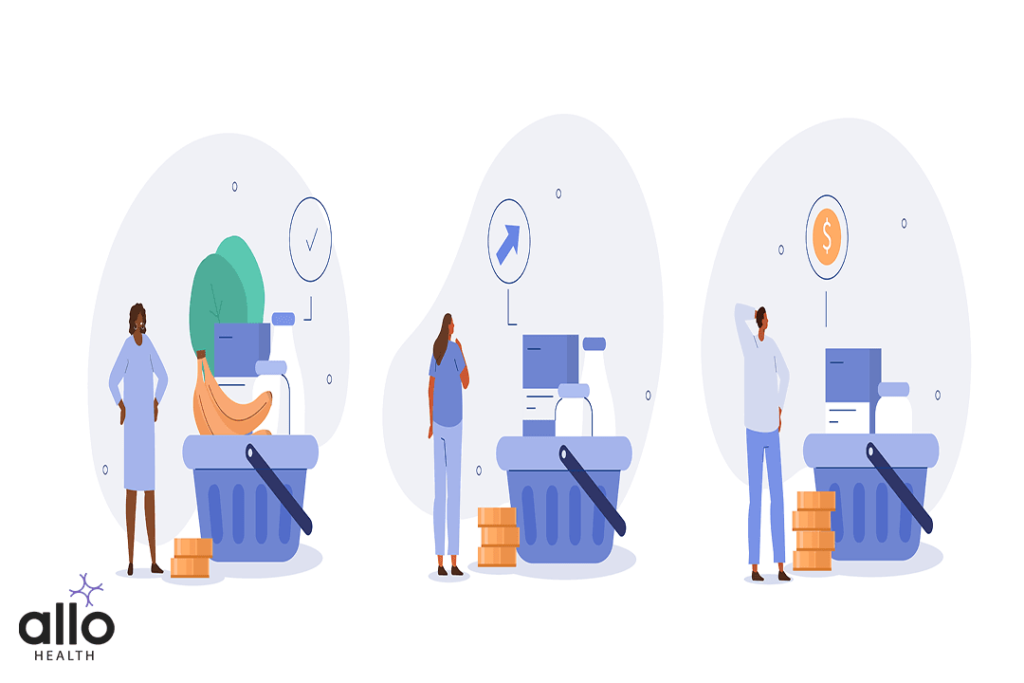
"The following blog article discusses food and diet-related information for general educational purposes. However, it is important to note that the information provided is not intended as personalized dietary advice and should not be considered a substitute for professional guidance from a registered dietitian or qualified healthcare professional. Before making any significant changes to your diet or nutrition plan, it is recommended to consult with a registered dietitian or healthcare professional.
Book consultation
Dietary changes can have a significant impact on your overall health and well-being. It is important to approach any changes to your diet in a balanced and sustainable manner, ensuring that you meet your nutritional needs and avoid any potential nutrient deficiencies. Rapid or extreme changes in dietary patterns can be detrimental to your health and may require professional guidance.
It is crucial to note that any specific dietary recommendations or guidelines mentioned in this article may not be appropriate for individuals with specific medical conditions, allergies, or intolerances. A registered dietitian or healthcare professional can provide individualized advice, including modifications or alternative food choices to accommodate your unique circumstances.
The information provided in this article may not encompass all possible dietary considerations or account for the latest research and nutritional guidelines."
Diet for Erectile Dysfunction
Lifestyle modifications can have a significant impact on sexual health along with overall health. However, there are various causes of men’s sexual dysfunction. This cause should be determined by an urologist, an andrologist, and/or a psychiatrist before a treatment plan is put in place.
Treating the underlying causes of MSDs (male sexual disorders) is an effective way to approach maintaining sexual health. Another way is the understanding that small lifestyle modifications, lead to healthy formed habits which allow for a better sex drive and sex life.
Those that experience chronic medical health conditions such as high blood pressure, atherosclerosis, diabetes, are all at a risk of erectile dysfunction.
These conditions are also closely related to negative lifestyle factors such as bad diets, vices such as smoking and drinking etc.
Sexual health is greatly affected by what you put in your body simply because it is affected both by physical and mental health. Sexual functioning is optimum when overall health is optimal.
Bad diets can lead to conditions such as increased body mass and obesity as well – both risk factors for ED. Maintaining a healthy body weight allows for great heart and blood vessel health as well.
For improvement in erectile function to be noticed, dietary caution is a valid medical advice – for anyone, in fact. Reducing Erectile Dysfunction risk is notably challenging with popularised foods around us – but we’ve made a list for you to begin with.
Did you know that there is evidence that reveals an association between different diets and men’s sexual health?
According to a study, ED symptoms were improved in men that consumed a Mediterranean diet — a diet that helps keep conditions such as diabetes and cardiovascular diseases at bay.
This could prevent conditions such as blood vessel damage and vascular disease, along with keeping blood supply levels optimum. Furthermore, men with higher BMI that have gone through weight loss through healthy diets saw improved erectile function.
How does diet help with Erectile Dysfunction?
Dietary factors can have affects on vascular function, and can, at times, be the cause of improved fertility. Conditions that involve the diagnosis of bad cholesterol, high sugar, cardiovascular health issues, or anything that has negative effects on blood flow, can be greatly improved by diet. Therefore, a nutritious diet is imperative for erectile dysfunction treatment.
You may have heard that ED could be an early indicator of heart disease. Blood flow is one of the most important factors when it comes to getting and maintaining an erection. Health concerns, some of which are closely associated with a bad diet, can increase the risk of developing or worsening ED symptoms.
These health issues include being physically inactive, binge drinking, atherosclerosis, and most importantly, obesity. Diets that are high in fats, and carbohydrates, contribute to obesity, which further can lead to worsening ED symptoms. Do you see the connection? Maintaining a healthy weight range can only be beneficial.
Some foods or beneficial ingredients in your meals improve erectile function by aiding in improved blood flow and increased testosterone production and production of nitric oxide. You may be wondering, what are some foods that help with this and how do they help?
Foods That Can Help You Sustain Stronger Erections
Nitrate-containing foods
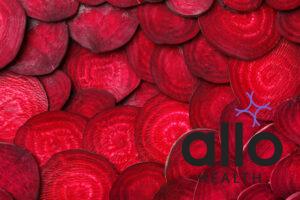
Nitrates are natural chemical compounds. They can cause vasodilation (that occurs with the relaxation of arteriolar and sinusoidal smooth muscle) that helps an erection. Furthermore, they also produce increase nitric oxide levels, which is beneficial for vascular health and blood flow. By promoting blood flow, nitrate rich foods can treat the physical effects of ED.
What are some nitrate-rich foods?
- Beetroot
- Celery
- Spinach
- Radish
Zinc-containing foods
A study found that men who received 30 milligrams levels of zinc per day showed increased levels of free testosterone in their bodies. Low levels of testosterone can affect erectile function – so maybe you’re for a bit of Zinc in your diet?
What are some Zinc-rich foods?

- Oysters
- Beef
- Crab
- Beans
- Yoghurt
L-Arginine containing foods

This amino acid found in protein helps in the creation of nitric oxide, which further helps in smooth muscle relaxation that allows for an erection to be maintained. L-arginine is said to help as another research study discovered that men with ED commonly have low levels of the amino acid. Research has suggested that that men with ED often have low levels of l-arginine.
What are some L-Arginine-rich foods?
- Fatty fish sources or other types of fish
- Red meat
- Poultry
- Whole grains
- Beans
- Dairy products
Flavonoid-containing foods
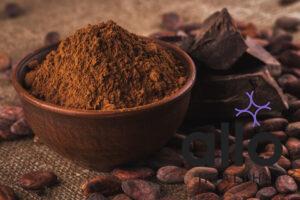
These are compounds naturally found in fruits and vegetables. Sources of flavonoids are rich in antioxidant activity and detoxification. An early study revealed that men of ages 18–40 who had 50 mg of flavonoids per day, were 32% less likely to report ED.
Furthermore, more research data has suggested that flavonoid-rich foods are associated with a lowered ED incidence. These compounds help in increasing blood flow and nitric oxide — the latter is needed for muscles in the penis to relax allowing for the chambers of the penis to fill with blood resulting in an erection.
What are some Flavonoid-rich foods?
- Cocoa
- Dark chocolate
Lycopene-containing foods
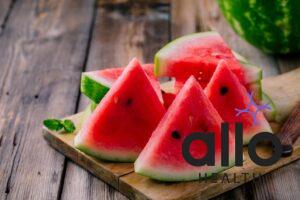
This natural compound is found in foods that are commonly pink or red. This is because it contains a chemical called carotenoid, which has a natural red/pink pigment. Research has suggested that lycopene improved ED in rats, allowing researchers to explore the idea of the compound possibly becoming a treatment option.
Another study further revealed that the compound has benefits for cardiovascular health — which is a major aspect of ED.
What are some Lycopene-rich foods?
- Watermelon
- Tomatoes
- Red peppers/Chilli Pepper/hot pepper
- Papaya
Olive Oil
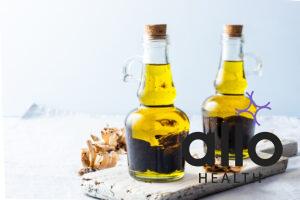
A Mediterranean diet – as mentioned above – is commonly rich in packed with virgin olive oil, nuts, fibre, fruits, and veggies. All of these help in reducing the risk of ED and its severity as well.
The health benefits of a balanced diet is understated – it can positively affect sexual performance and health.
Key Takeaways
- Lifestyle modifications impact sexual and overall health.
- Causes of male sexual dysfunction (MSDs) should be diagnosed by specialists before treatment.
- Chronic medical conditions like high blood pressure, diabetes, and atherosclerosis can lead to erectile dysfunction (ED).
- Diets high in fats and carbohydrates contribute to obesity, worsening ED symptoms.
- Nitrate-rich foods (beetroot, celery), zinc-containing foods (oysters, beef), and L-arginine-containing foods (fish, poultry) promote better blood flow and hormone production.
- Flavonoid-rich foods (cocoa, dark chocolate) and lycopene-containing foods (watermelon, tomatoes) aid in improved vascular health and ED prevention.
- While a healthy diet is essential for overall health and can positively impact sexual function, it is not a one-stop solution for male sexual dysfunction (MSD). MSD can have various underlying causes, including medical conditions, psychological factors, and hormonal imbalances, which may require specific treatments beyond dietary changes. Consulting healthcare professionals for accurate diagnosis and tailored treatment plans is crucial to address the individual’s specific issues related to sexual health effectively.
Frequently Asked Questions
Q: Can excessive alcohol consumption cause MSD?
A: Yes, excessive alcohol consumption can negatively affect male sexual dysfunction (MSD). It can lead to erectile dysfunction, decreased libido, and difficulty achieving or maintaining an erection due to its impact on the nervous system, blood flow, and hormone levels.
Q: What foods help with erectile dysfunction?
A: Foods that help with erectile dysfunction (ED) include nitrate-rich sources like beetroot and spinach, zinc-containing foods such as oysters and beef, and L-arginine-containing foods like fish and poultry. These nutrients promote better blood flow and hormone production, which can aid in managing ED. (Source: Medical research studies on ED and nutrition).
Q: What is the role of caffeine intake on MSD?
A: The role of caffeine intake on male sexual dysfunction (MSD) is not entirely clear, as some studies suggest that moderate caffeine consumption may have a positive effect on erectile function, while excessive intake may increase the risk of ED due to its impact on blood flow and vascular health.
Q: What are foods that improve erection?
A: Foods that may improve erection include nitrate-rich foods like spinach and beets, and foods containing L-arginine, such as fish and poultry, which promote better blood flow and relaxation of penile blood vessels.







































